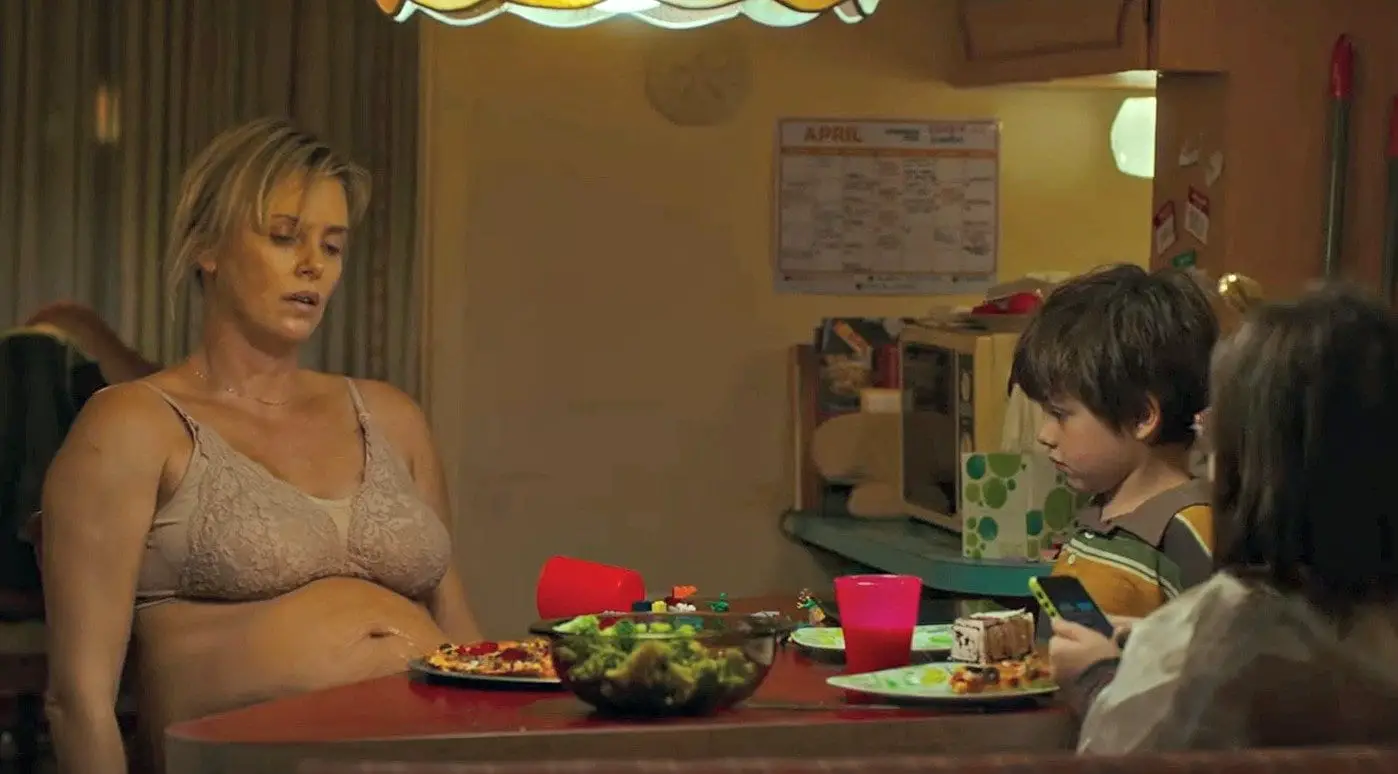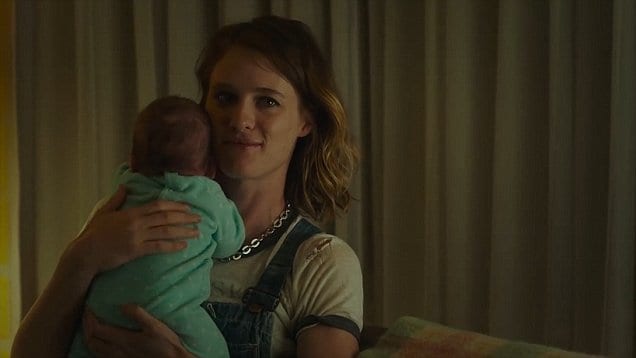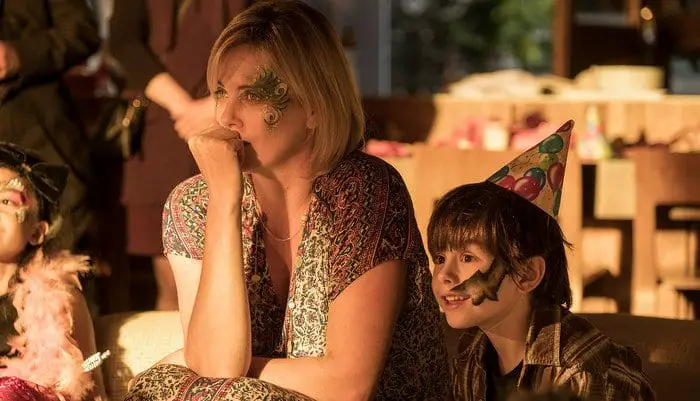No force completely upends your life, changing your body and your being, quite like motherhood. It is only through a pregnancy where a woman becomes a vessel for another human life and where her own life is no longer her only priority. Motherhood is a journey that impacts daily life, creates new routines and future plans, and even involves reconciling parts of one’s past and accepting that the person we thought we were going to be—before having children—will never exist. It’s easy to be swept away in the joys of parenthood, bringing a new life in the world, and creating an immediate family that couldn’t exist without you is an overwhelmingly beautiful feeling. What’s tougher is feeling comfortable enough to admit the struggles and combating the judgments that come with experiencing such joys. Nothing brings with it the expectation of constant positivity quite like parenthood, and the outlets are few and far between where mothers are permitted to lay bare the realities of motherhood that aren’t always as positive. Once you become a mother, you have to become everything to everyone.
You turn into a caretaker, perhaps a wife, a chauffeur, a sexual partner to your significant other—all while managing a household and adapting to life as a mother, and this reality and complete upheaval of identity is often overwhelming. Motherhood presents a time when self-care is of cardinal importance but difficult to achieve. Often, mothers feel selfish taking time away from their families, children, and the never-ending list of responsibilities that greets them with each new day to take any time for themselves to better cope and manage their obligations. Tully, the 2018 film written by Diablo Cody and directed by Jason Reitman—the same team behind Juno—reminds audiences of the pitfalls of neglecting oneself, while creating a safe space to commiserate with the difficult realities of motherhood often ignored in the cinematic landscape.

Tully introduces audiences to Marlo (Charlize Theron), mother to Sarah (Lia Frankland) and Jonah (Asher Miles Fallica), who’s pregnant with her third child and trying to navigate a life she didn’t imagine for herself. Marlo seems to have fallen into parenthood; she lives an isolated existence from her husband, Drew (Ron Livingston), who is often too distracted with work or online gaming to be a psychologically present partner to his wife. Marlo doesn’t begrudge her role as a mother, far from it—she has devoted her entire being to her children, but it has certainly taken its toll, complicated by the difficulties she encounters with her son, Jonah. She is constantly attending meetings with his principal regarding behavior they deem as “quirky” making clear that if she does not pay for an aid, which her family cannot afford, he will be dismissed from the school.
Marlo’s brother Craig (Mark Duplass) and his wife Elyse (Elaine Tan), a well-off couple, made a sizeable donation at the private school Jonah and Sarah attend in order to gain their admission. Doctors have been largely unresponsive to Marlo’s requests for help and her family cannot afford the specialists necessary to expedite the process, so she is left dealing with his outbursts alone while watching videos online of methods that may help them through his undiagnosed difficulties. To help the clearly exhausted Marlo after the birth of her third child, her brother discusses with her the benefits of hiring a night nanny, while making brief mention of how it could help avoid the problems she experienced after her previous pregnancy. Initially unwilling to accept such an intrusive presence, Marlo eventually relents, recognizing her need for help and finds herself energized by the young woman, Tully’s (Mackenzie Davis), presence.
Just as most mothers do, we see Marlo struggle with an aspect of motherhood rarely discussed or acknowledged in its difficulty: how publicly it begins. There comes a point in the pregnancy journey that one can no longer hide their growing bump concealing the human life developing inside of them. This visible sign of procreation often leads strangers to believe that they have the liberty to discuss personal aspects of your own body, and the intentions you plan on carrying out with the child you are bringing into the world. As a person who has experienced pregnancy, I cannot count the number of times complete strangers felt comfortable asking me if I intended to circumcise my son, because they also felt comfortable inquiring about my baby’s sexuality. These are things that aren’t commonly considered as intrusive, but once thought about, assume a level of familiarity that isn’t shared between someone with whom you happen to cross paths at the grocery store. This expectation that you make aspects of yourself or your child public, simply because the world is able to surmise that you are pregnant due to the significant changes in your body, is a micro act of expected compliance that is one of the first steps in diminishing the identity of the mother.
This reality is best exemplified in the film when a woman at a coffee shop headshakes Marlo, who decides to get a decaf latte after she informed her that there are trace amounts of caffeine even in decaf. Not only did this woman feel within her bounds to attempt to tell Marlo how to take care of her body and the body of her unborn child, but she also judged her decision which is only the beginning in the circle of judgment in which mothers find themselves ushered in by pregnancy. After the child is born, your parenting is in constant question. If your child acts out, people think “what do their parents let them get away with?” If your child experiences an emotional outburst while shopping for new clothes, people can’t help themselves from asserting “I never would have let my child get away with that.” As a millennial mother, one of my personal favorites is the critique of previous generations asserting that children are too coddled and are no longer adequately “hardened” for the real world, despite the fact that the real world in which we live is full of young people not parented by millennials, who disregard empathy and human life so much that mass shootings have become commonplace in American society. Maybe such outward expressions of love and acceptance is exactly what is needed to curb the disregard and violence that has become commonplace throughout our collective experience.

It is through Tully, a grounded young woman with her whole life ahead of her who knows exactly what she wants, that Marlo feels comfortable accepting that what she thought her life was going to be won’t be actualized. Marlo reveals to Tully that she has never really laid to rest the person she thought she would become. We see a longing in Marlo when she asks a woman from her past “you still live in the loft?” There was a certain energy we recognize that Marlo used to possess that is different from the life she inhabits now and speaking as a mother who didn’t plan to enter motherhood when I did, I can recognize the longing in her eyes when she allows herself to think about what her life may have become. Life is full of the struggle between expectations and realities, and oftentimes the weight of those expectations can suffocate us or leave us feeling like we are drowning in the ocean, a recurring vision throughout the film. The older I get, the more I feel as though we are ill-equipped with the understanding that life is complicated and, despite the measures we put in place to gain control, so much of it is out of our hands. This feeling Marlo experienced, of not doing enough or not making the right moves in her life, resonated with me on an individual level, in addition to highlighting the coming-of-age anxieties that accompany trying to find oneself in a changing world.
Marlo divulges to Tully during an evening of contemplation and reflection, “if I had a dream that didn’t come true, I could at least be p*ssed off at the world, instead I’m just p*ssed off at myself.” This ship in a bottle feeling of floating through life, while trying to find something to devote your existence to, is something experienced by many. Marlo had an interest in literature that she never abandoned even after having children, but that she also couldn’t turn into a career or something that she could take ownership of that would bring her fulfillment through her work. We have this notion of life when we are younger that we’ll find something we love to do, and do that for employment and be satisfied with ourselves and our work until retirement only to find out that such a reality only happens if one is extremely fortunate. Most of us work in jobs that are disconnected from our passions, and it is our non-working hours spent doing what brings us the most joy. The most unfortunate aspect of this layout is that we spend much more time working than we do not, and once we are not working, we are also expected to attend to several other responsibilities, further pushing our reason for living to the bottom of our heap of undertakings.
It is also through Tully’s introduction into Marlo’s life that we learn Marlo suffered through postpartum depression. Just as pregnancy and motherhood are treated in the movies as constant positives with few struggles, where women still have time to have professional-looking hair and makeup at all times of the day, postpartum depression is treated as something that rarely occurs. Tully was the rupture needed in Marlo’s life to attend to the postpartum issues from her previous pregnancy that perhaps didn’t receive adequate attention, but certainly to get her to face the PPD associated with her most recent pregnancy. The feelings we see Marlo experiencing and the struggles of raising three children largely on her own allow us to recognize the particular hardships of motherhood with the added experience of struggling under postpartum depression. Breaking the silence associated with postpartum depression and exposing the realities of the complication is one of the best aspects of the film, and one I hope to see emulated in the years to come.

Amidst all of the judgment from both ourselves and other mothers and the constant questioning of one’s abilities and the perceived inadequacies associated with motherhood, we also get to experience those wonderful moments where it becomes clear that our children don’t care whether or not we make cookies that look like cartoon characters or opt for an easy-going night of frozen pizza dinners—they just care that we spend time with them. When Jonah asks his mom if they have to continue the skin brushing technique that Marlo learned may help his outbursts, he tells her that more than the brushing helps him, the allocated time spent with his mother every day is what he really cherishes. We spend so much time trying to do what is best for our children and positioning them for success and happiness, we forget that we are the only mother we have, and oftentimes the most invaluable thing we can give them is our undivided attention. The world is asking so much of mothers that it is easy to lose track of the bond created with someone once we give birth.
Our children grow and develop inside of us through pregnancy, maintaining cells that they collected from our own bodies long after they’re born, cementing this connection to the mother that cannot be severed. Instead of submitting to the pressures of being the best, we can naturally provide the best simply by giving to our children what no-one else can: time with their mother. Tully connects the devotion to our children and how that is manifested by the mother in a powerful way; better than any film I’ve ever seen tackle the subject, and the reason why the film deserves a wider audience than it seems to have achieved thus far.


